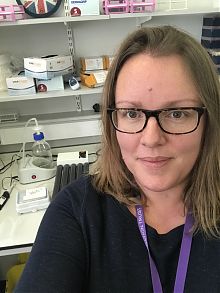Our Research
Research work is/has been funded in the departments of Organ Transplantation, Urology and Nephrology, at the Royal Liverpool University Hospital (RLUH) and Alder Hey Children’s Hospital as well as occasional support of relevant work in certain departments of The University of Liverpool.
Kidney Research Northwest has been helped greatly by the joining of all services on the campus of the Royal Liverpool University Hospital (RLUH). KRNW have rooms within the premises of the University of Liverpool’s, Cancer Research Centre providing all necessary support facilities. KRNW research is usually carried out by medically qualified personnel who have already acquired specialist qualifications. Most will obtain a Masters or Doctorate as a result of their work and proceed to Consultant posts in the NHS. Many of our former research fellows are now Directors of their own specialist department. KRNW pays for salaries and costs of research fellows during their normal tenure of two or three years.
Research project applications are submitted to KRNW and are considered by our Scientific Sub Committee, and our Board of Trustees before funding is given.
If you would like to apply for funding from KRNW you can do so by downloading the following documents and forwarding to KRNW central office via email to aedge@liverpool.ac.uk.
Funding Application Form
Funding Terms and Conditions
Please contact us if you require further information regarding applying for funding.
Please carry on reading below to find out more about some of the research KRNW has funded:
Use of inverse vulcanized sulfur polymers for prevention of catheter-associated urinary tract infections
Dr Daniel Neill – Senior Lecturer and Sir Henry Dale Fellow
Dr Tom Hasell – Senior Lecturer and Royal Society University Research Fellow
Prof Jo Fothergill – Professor in Medical Microbiology
Dr Ocean Clarke – Postdoctoral Research Associate
Developing a Human Kidney Cell Model of Vancomycin-induced Kidney Injury to Support Translational Research
Dr Stephen McWilliam – Senior Lecturer in Paediatric Clinical Pharmacology, Women’s and Children’s Health, University of Liverpool
Read more »The Role of Bacterial and Host Factors in Persistent Bacterial Infections in Complicated Urinary Tract Infections
Supervisors:
Dr Jo Fothergill, Institute of Infection and Global Health, University of Liverpool
Dr Rachel Floyd, Institute of Translational Medicine, University of Liverpool
Investigator:
John Newman
Novel Urinary Markers of Renal Injury in Children with Cancer
Dr Chris Barton, Dr Louise Oni (Watson), Dr Dan Hawcutt, Dr Caroline Jones, Professor Barry Pizer, Karen Selwood (Advanced Oncology Nurse Practitioner) and Oncology Research Nurses Sue Hemsworth and Erica Hincks based (Department of Paediatric Oncology, Alder Hey Children’s Hospital) in collaboration with the laboratory of Professor Munir Pirmohamed (Wolfson Centre for Personalised Medicine/Institute of Translational Medicine, University of Liverpool)
Read more »Exploration of the new mechanisms of kidney damage
Researchers: Dr Rana Rustom, Dr Liliana Shalamanova, Dr Frank McArdle, Prof M J Jackson, Prof Anne McArdle
Kidney failure requiring dialysis treatment leads to increased morbidity and death and is very costly to the NHS. Damage to the kidney occurs at many levels but the site that is very important is called the proximal tubule
Read more »Kidney Cancer: A Mersey Kidney First Project 2013
The number of cases of kidney cancer diagnosed in the UK, and in many other industrialised countries, has doubled in the past thirty years. Almost half of all patients diagnosed with kidney cancer die from the disease. We urgently need to improve treatment for patients with kidney cancer.
Read more »Role of defective mitochondrial function in skeletal muscle weakness in patients with chronic kidney disease
Prof A McArdle, Dr A V Crowe, Dr A Sharma, Dr A Kayani
Advanced chronic kidney disease (CKD) is a severe and debilitating disease suffered by a growing number of people worldwide. The impact on the lives of sufferers is profound, with most experiencing significant reduction in their quality of life.
Read more »How does bacterial infection cause ureteric dysfunction and contribute to kidney damage
Researcher(s): Dr Rachel Floyd, Dr Ted Burdyga, Prof Susan Wray, Dr Craig Winstanley
The urinary tract is a highly adapted system that produces, stores, and eliminates urine. In humans and most mammals it is composed of two kidneys, two ureters, the urinary bladder, two sphincter muscles, and the urethra.
Read more »Kidney Cancer
Drs Mark Boyd, Nikolina Vlatkovic and Mr Keith Parsons. Cancers of the kidney are on the increase in the developed world. In the UK, the number of cases has doubled in the past thirty years with over 9,000 new cases diagnosed in 2010 and 4,000 patients now dying from this disease each year.
Read more »







